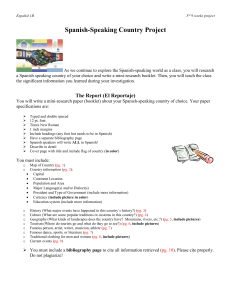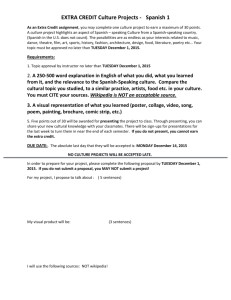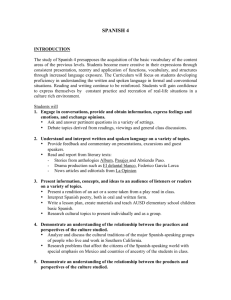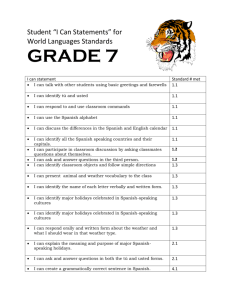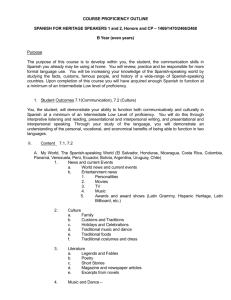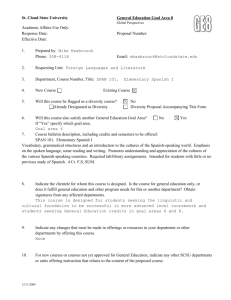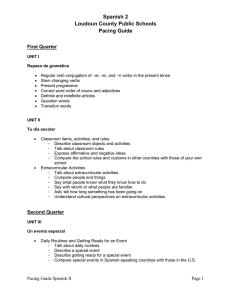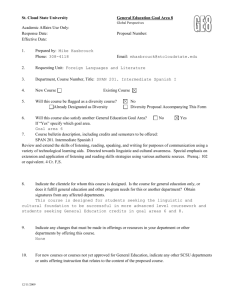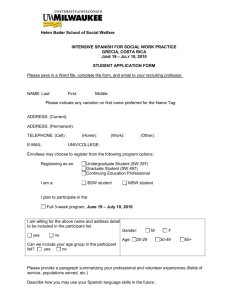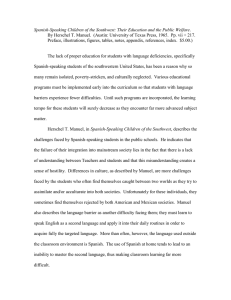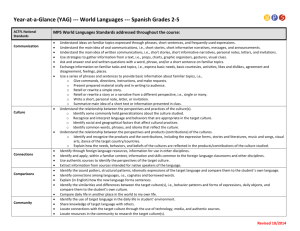7 th Grade Can-Do Statements
advertisement
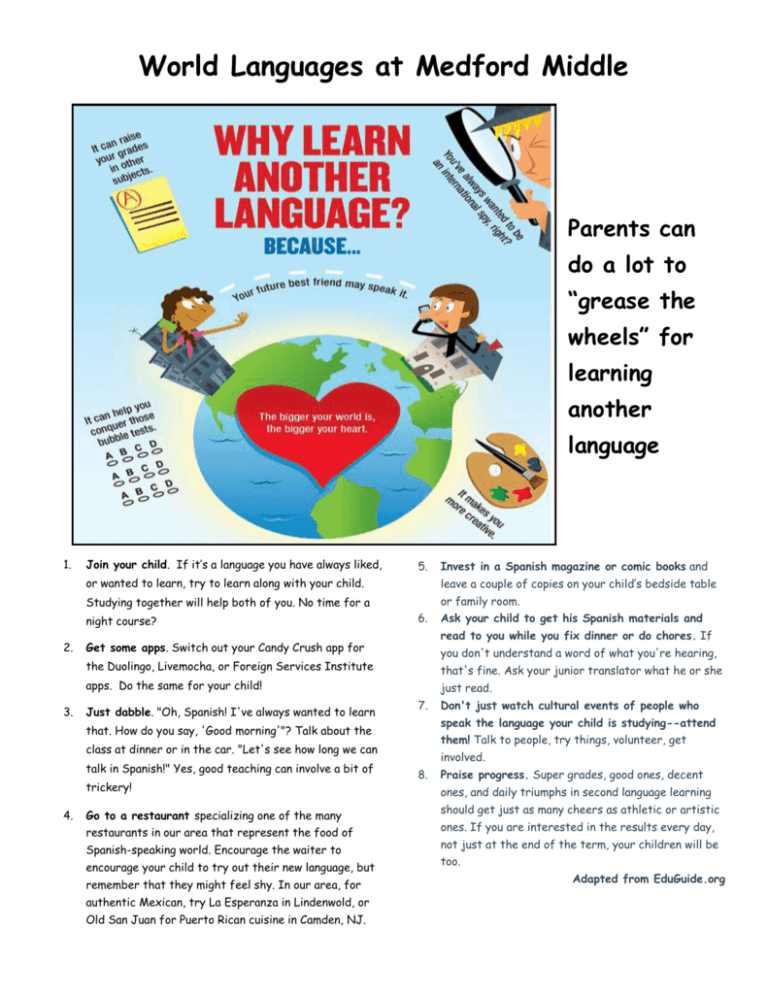
World Languages at Medford Middle Parents can do a lot to “grease the wheels” for learning another language 1. Join your child. If it’s a language you have always liked, leave a couple of copies on your child’s bedside table Studying together will help both of you. No time for a or family room. 6. you don't understand a word of what you're hearing, that's fine. Ask your junior translator what he or she apps. Do the same for your child! Just dabble. "Oh, Spanish! I've always wanted to learn just read. 7. them! Talk to people, try things, volunteer, get class at dinner or in the car. "Let's see how long we can trickery! 4. Go to a restaurant specializing one of the many restaurants in our area that represent the food of Spanish-speaking world. Encourage the waiter to encourage your child to try out their new language, but remember that they might feel shy. In our area, for authentic Mexican, try La Esperanza in Lindenwold, or Old San Juan for Puerto Rican cuisine in Camden, NJ. Don't just watch cultural events of people who speak the language your child is studying--attend that. How do you say, 'Good morning'"? Talk about the talk in Spanish!" Yes, good teaching can involve a bit of Ask your child to get his Spanish materials and read to you while you fix dinner or do chores. If Get some apps. Switch out your Candy Crush app for the Duolingo, Livemocha, or Foreign Services Institute 3. Invest in a Spanish magazine or comic books and or wanted to learn, try to learn along with your child. night course? 2. 5. involved. 8. Praise progress. Super grades, good ones, decent ones, and daily triumphs in second language learning should get just as many cheers as athletic or artistic ones. If you are interested in the results every day, not just at the end of the term, your children will be too. Adapted from EduGuide.org At Medford Middle, we have recently updated our Spanish curriculum to emphasize what students can do with their language skills. Curious about what they will be able to do? Read on! 7th Grade Can-Do Statements 1. 2. 3. 4. 5. 6. 7. 8. 9. 10. 11. I can say my class schedule. I can interpret a school schedule from a Spanish-speaking country. I can talk about what I need for school. I can determine how my school day and the school day of a student in a Spanish-speaking culture are similar and different. I can talk about physical characteristics and personality qualities. I can ask someone what he or she is like. I can tell time. I can say what I like or dislike. I can say what I need and what I want. I can describe differences in school schedules, schooling practices and school systems in Mexico and the U.S. I can explain how perceptions of basic needs vary among and within cultures of the Spanish-speaking world. 8th Grade Can-Do Statements 1. 2. 3. 4. 5. 6. 7. 8. 9. I can describe landmarks and buildings in a city. I can interpret a map to find landmarks and buildings in a city. I can plan an itinerary for a trip to a Spanish-speaking country. I can put food into food groups. I can say what I typically eat for breakfast, lunch, and dinner. I can talk about the foods I like and dislike. I can interpret a menu in Spanish. I can order in a restaurant. I can identify healthy eating habits and typical food choices in Spanish-speaking countries and issues related to food availability. 10. I can recognize and analyze the rich diversity of Spanish-speakers and the Spanish-speaking world. Srta. Monica Stillman Want to know more? Contact me @ mstillman@medford.k12.nj.us 609-654-7707 ext. 8209
